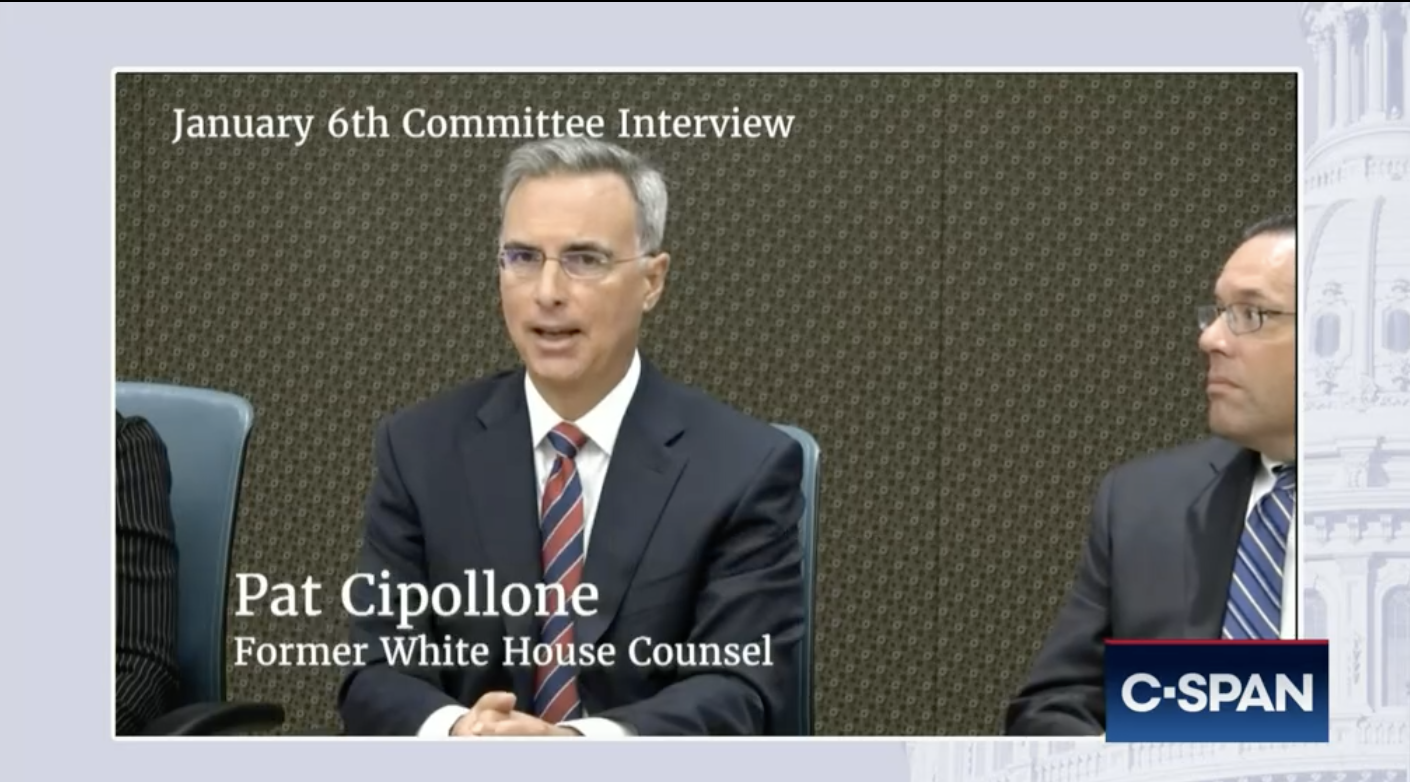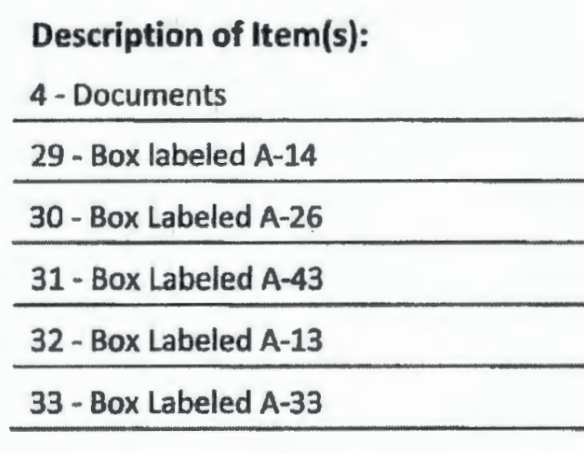One Big Potentially Pending Question: What Happens to Trump’s Impeachment 1.0 Papers?
There’s a comment in DOJ’s response to Judge Aileen Cannon’s order to file an update by tomorrow that caught my attention. DOJ suggests there may be no dispute about whether the stuff it has been pursuing a review of is really privileged.
Although the government will provide the Court more detail in its forthcoming supplemental filing, the government notes that, before the Court issued its Preliminary Order, and in accordance with the judicially authorized search warrant’s provisions, the Privilege Review Team (as described in paragraphs 81-84 of the search warrant affidavit) identified a limited set of materials that potentially contain attorney-client privileged information, completed its review of those materials, and is in the process of following the procedures set forth in paragraph 84 of the search warrant affidavit to address potential privilege disputes, if any.
As I laid out here (and as virtually all journalists are still getting wrong), DOJ used a privilege team for the search on August 8. At least according to Fox News, all the potentially privileged material was inventoried on what I call the SSA receipt (because it was signed by the Supervisory Special Agent, rather than the Special Agent).
I surmised and DOJ has now confirmed that DOJ has been “in the process of following the procedures set forth in paragraph 84 of the search warrant affidavit to address potential privilege disputes, if any.” That means DOJ is using one of these methods:
84. If the Privilege Review Team determines that documents are potentially attorney-client privileged or merit further consideration in that regard, a Privilege Review Team attorney may do any of the following: (a) apply ex parte to the court for a determination whether or not the documents contain attorney-client privileged material; (b) defer seeking court intervention and continue to keep the documents inaccessible to law-enforcement personnel assigned to the investigation; or (c) disclose the documents to the potential privilege holder, request the privilege holder to state whether the potential privilege holder asserts attorney-client privilege as to any documents, including requesting a particularized privilege log, and seek a ruling from the court regarding any attorney-client privilege claims as to which the Privilege Review Team and the privilege-holder cannot reach agreement.
Option c is effectively to invite Trump to provide feedback on the privilege issues, an option that Evan Corcoran has told us DOJ specifically rejected back on august 11.
Option b is to simply not access the materials; since FBI seized it, it’s likely they saw something on August 8 that made them want to access the materials.
So we can be fairly sure that DOJ is pursuing Option a to get this material, an ex parte review by a judge — the implication is Bruce Reinhart, but it’s possible they’ve involved someone who’s more senior, such as DC Chief Judge Beryl Howell (who is presiding over the grand jury conducting this investigation) or SDFL Chief Judge Cecilia Altonaga — to see whether it is attorney-client privileged.
I want to talk about three categories of documents that might appear to be covered by attorney-client privilege that a judge might otherwise decide are not. DOJ’s suggestion that there may not be a dispute reminds me of how, during the privilege review of Michael Cohen’s phones in 2018, as soon as Judge Kimba Woods ruled that any fight over privilege would have to be public, Trump slithered away and stopped fighting to keep the recordings about hush payments that Cohen kept on his phone away from prosecutors.
In other words, particularly since DOJ completely bypassed any involvement from Trump, I suspect DOJ believes that the materials currently under ex parte review by Reinhart or some other judge may be crime-fraud excepted.
Consider the kinds of materials that, under the warrant, could be seized:
- Any Presidential or government record created during Trump’s term, which would include most if not all of the subcategory of documents bearing classification marks
- Documents stored along with (that is, perhaps in the same storage closet) documents bearing classification marks
- Evidence of the knowing alteration, destruction, or concealment of government and/or Presidential records — basically, of obstruction
If it remains true that all documents with potentially privileged materials are on the SSA receipt, it is likely that there were a chunk of documents — labeled just “documents” seized from his office (where the privilege team did all the initial search) — as well as five boxes that by description were stored with documents bearing classified markings, probably found in the storage room and handed off to the filter team for some reason.
The most obvious set of materials that would appear privileged but might be deemed by a judge to be crime-fraud excepted would pertain to obstruction: Materials that post-date Trump’s Presidency involving lawyers (either the former White House counsels who attempted to get him to return the documents) or his current attorneys, especially including the effort to refuse NARA and DOJ’s requests and/or to provide bullshit information in response to one or more subpoenas. That’s what those documents seized from Trump’s office might consist of.
Another category of documents might include materials involving non-governmental lawyers — Rudy Giuliani or John Eastman are likely possibilities — that appeared on official government records. These materials might pertain to January 6. Particularly given that SCOTUS approved the waived privilege claims over Trump’s governmental files, those seem like an easy decision.
A third category of information pertains to advice White House counsel lawyers gave Trump while still in office outside the context of a legal proceeding (different from the advice the same former White House counsels gave during the extended fight with NARA) that he wants to keep from DOJ. The Bill Clinton precedent would say that NARA at least gets this information, and if there is a legal basis for the FBI to obtain it (such as that it includes classified information, as the White House counsel response to the Zelenskyy-Trump call would be), then it would seem FBI would be able to obtain it. Given Trump’s bid to claim Executive Privilege over certain information, I wouldn’t be surprised if this were a heated issue.
The one set of documents that I think does raise real concerns, though, is Trump’s defense during Impeachment 1.0. At least three members of the White House Counsel staff were part of Trump’s defense team: Pat Cipollone, Patrick Philbin, and Michael Purpua. Taxpayers paid their salaries during the period when they were defending Trump, and so under the Clinton precedent, any files involving them would seem to be government documents covered by the Presidential Records Act. But Trump also had some talking heads — like Alan Dershowitz and Pam Bondi — and one of the real private attorneys who represented him in the Russian investigation, Jane Raskin. Trump’s communications with the later two groups should be privileged.
I’ve asked experts on Richard Nixon and Bill Clinton what happened with their impeachment records. Best as I can tell, many of those records are in the Archives. But I’m still not sure how the special case of Trump’s impeachment defense would be treated.
Update: Removed Eric Herschmann from the list of WH Counsels who represented Trump in impeachment. He was still in private practice then.


